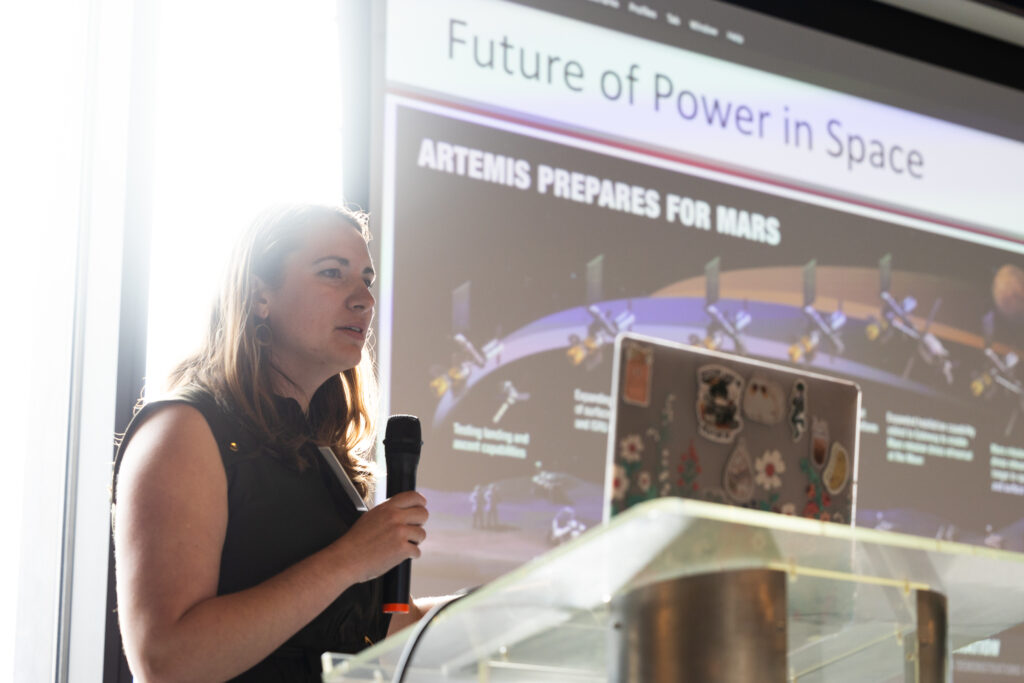
Story by Meghana Potta
The Graduate Women in Course 6 (GW6) 5th Annual Research Summit was held on October 20 at MIT’s Innovation Headquarters. The half-day summit welcomed all students and faculty members affiliated with the Electrical Engineering and Computer Science (EECS) department at MIT. The objective of the event was to showcase the research work of MIT EECS, with a focus on the contributions made by women and underrepresented gendered doctoral graduate students.
The launch of the event featured research talks from six distinguished women from both industry and academia, covering topics ranging from geometric machine learning to biomedical optical imaging to computational fabrication. Each speaker delivered a ten-minute lightning talk in contrast to the previous edition’s three-minute version. The speakers shared how their research interests were shaped, talked about their own Ph.D. experiences, and normalized the feeling of uncertainty when seeking an advanced degree and being underrepresented. Julia Estrin, one of GW6’s three co-presidents, explained how these format changes allowed for a more holistic presentation. “It was great to not only hear about these women’s research but also a little bit about their journey to MIT.”
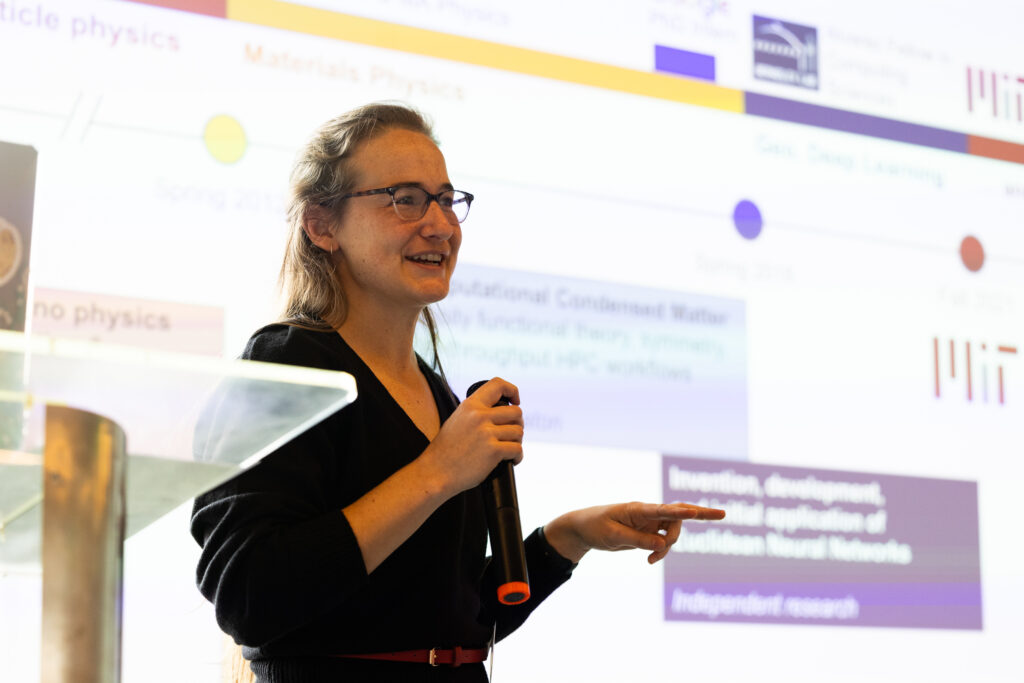
The session was led by Tess Smidt, an assistant professor of MIT EECS and an alumnus of the institute. Tess specializes in machine learning techniques that incorporate physical and geometric constraints, with a particular emphasis on materials design. She uses neural networks with built-in Euclidean symmetry to predict quantum mechanically accurate properties of molecules, crystals, and proteins. The ultimate goal of Prof. Smidt’s research is to develop computational tools that can help us understand and design the structure-property relations of atomic systems. She emphasizes that her path to this field was not straightforward and that the experiences and skills she has gained along the way have been essential in shaping her research style.
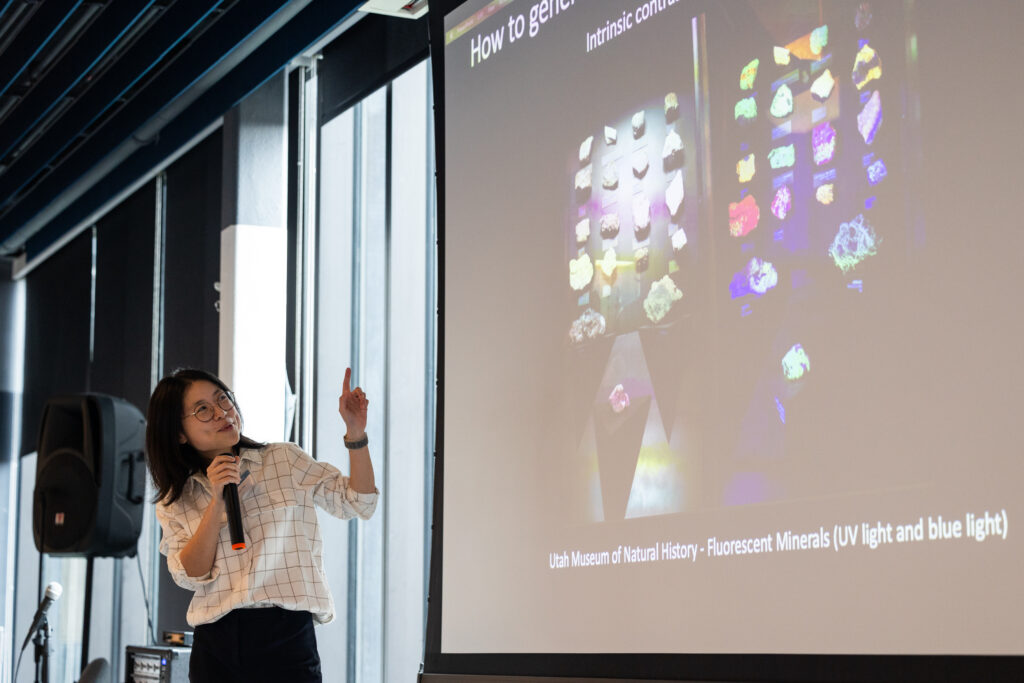
Next up, Sixian You, an assistant professor at MIT EECS and RLE presented her research on developing next-generation optical microscopy to enable new science and better treatments in biomedicine. Her broad and long-term research goal is to push the boundaries of optical physics, engineering, and algorithms to accelerate discovery.
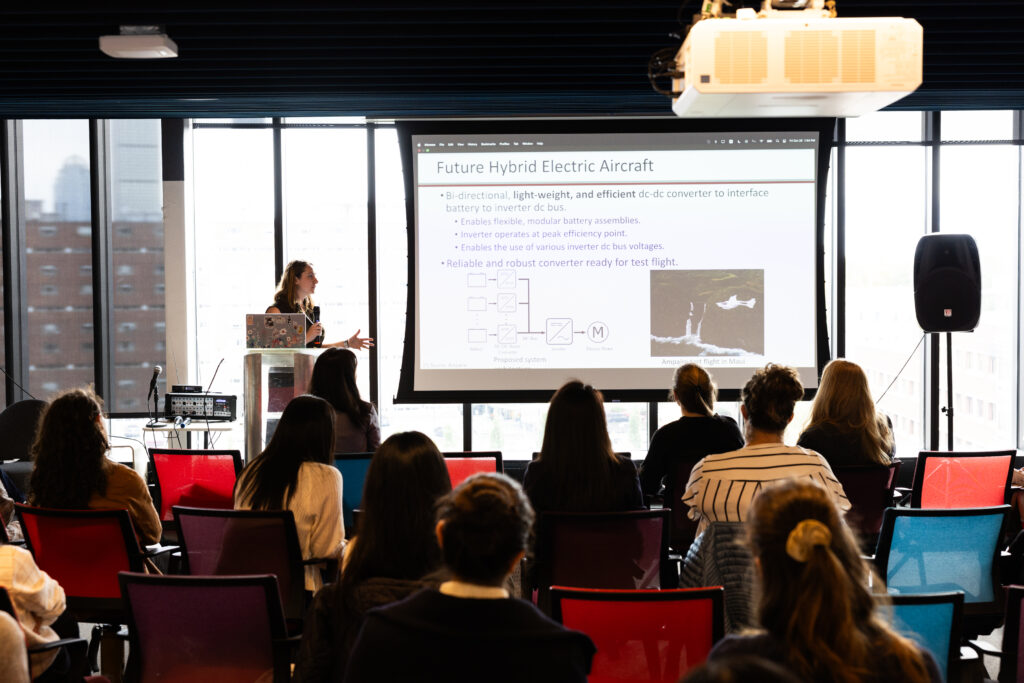
Samantha Coday, an assistant professor of MIT EECS at MIT’s Research Laboratory of Electronics, took the stage next to share her passion for capacitive-based power converters for future electrification. She discussed the various applications of these converters, including ultra-dense power converters for renewable energy integration, hybrid electric aircraft, and even space exploration.
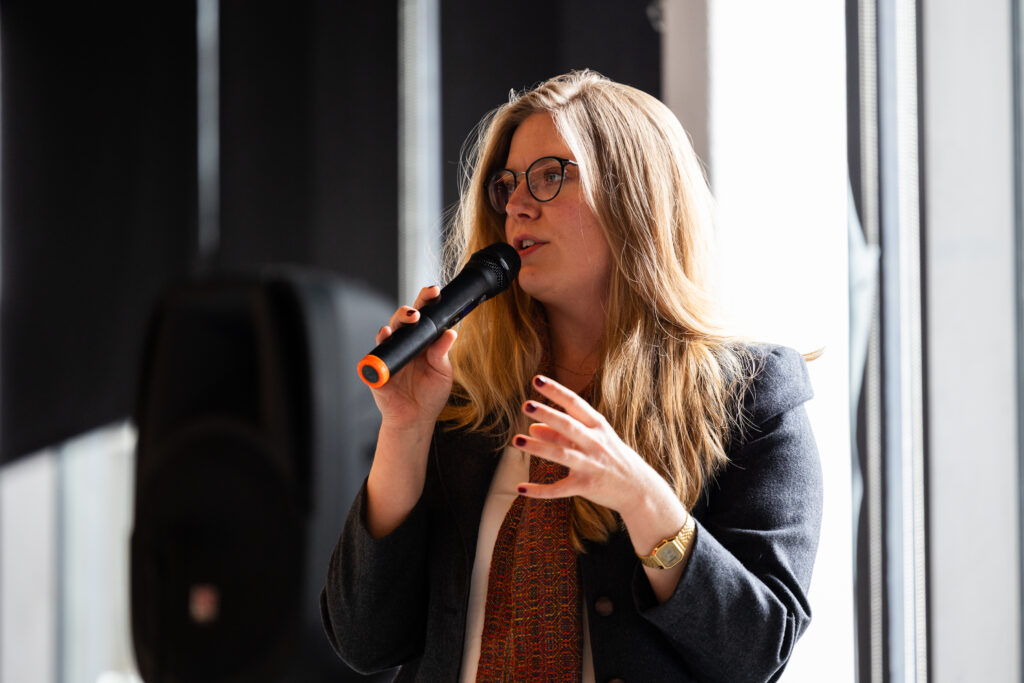
Dr. Samantha Dale Strasser (EECS alumna, 2019), the Chief Scientific Officer and co-founder of Pepper Bio, was the next speaker. She laid the foundation for Pepper Bio’s technology while working as an NSF Graduate Research Fellow at MIT. Pepper Bio’s transomics approach has revolutionized drug discovery. Dr. Strasser strongly feels that science needs messengers to communicate its message effectively, and she embodies this belief.
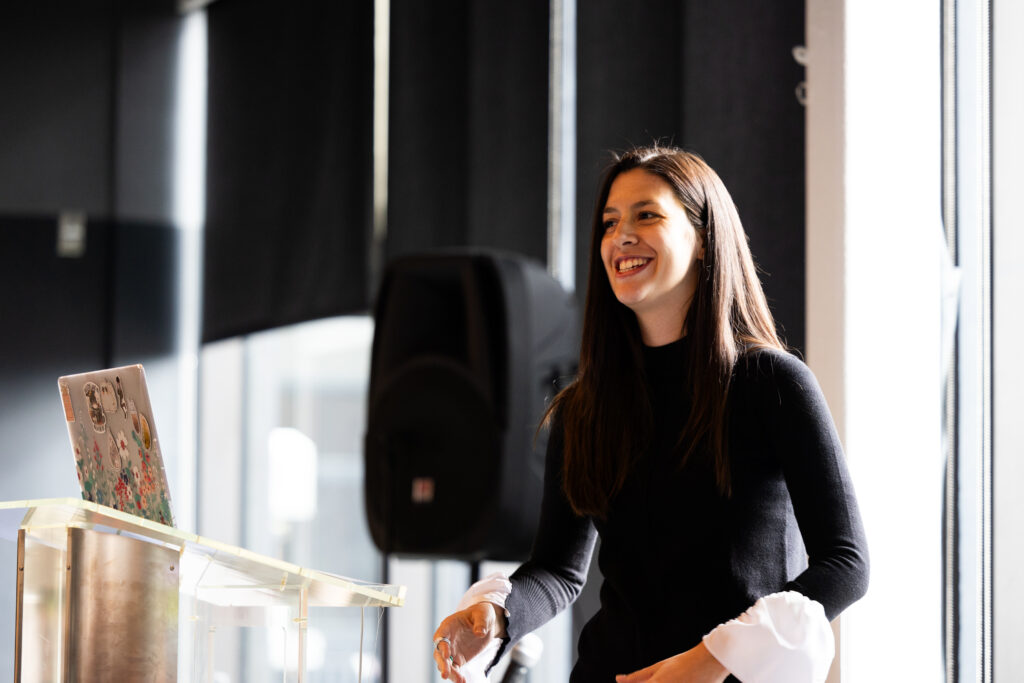
Following Strasser, Mina Konakovic Lukovic, an Assistant Professor at EECS and a principal investigator in MIT’s Computer Science and Artificial Intelligence Lab (CSAIL) presented research centered around computer graphics, computational fabrication, 3D geometry processing, robotics, and machine learning. Her work includes architectural geometry and the design of programmable materials, with a focus on transforming design and fabrication through computational discovery.
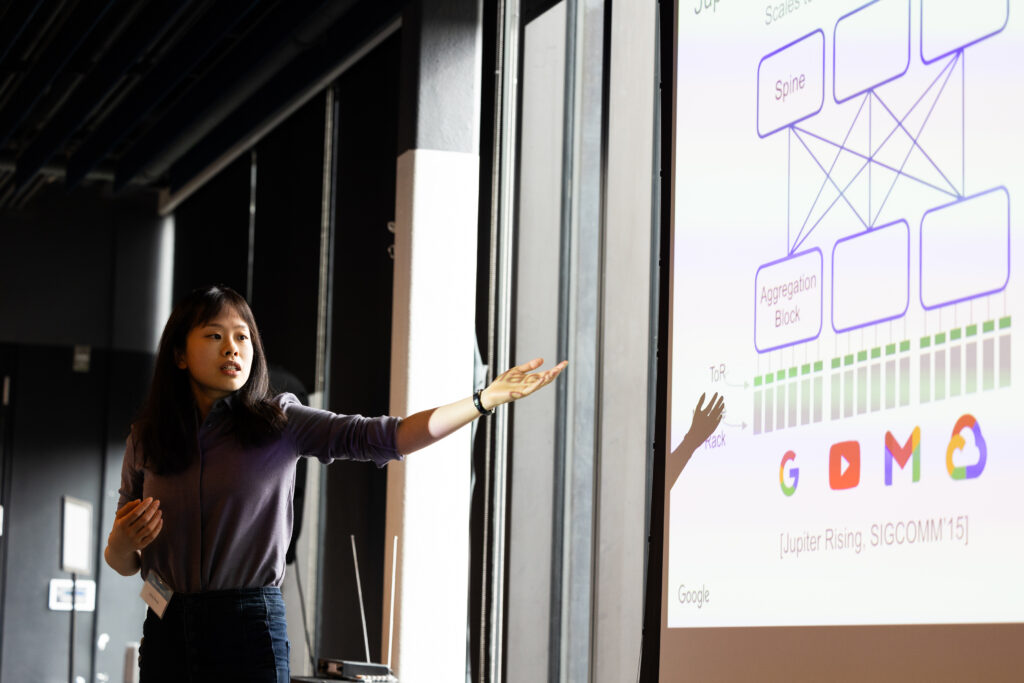
Anny Zheng (EECS alumna 2020) was the final presenter, sharing her vision for a virtual datacenter-level computer that will continuously optimize compute, storage, and machine learning, while also incorporating dynamic traffic and topology-engineered networking. Dr. Anny Xijia Zheng is a systems and infrastructure software engineer on the Network Infrastructure Team in ML, System, and Cloud AI at Google.
The speakers not only pushed the boundaries of their respective fields but also focused on real-world applications, highlighting the next generation of technology, such as renewable energy integration, phosphoproteomics for cancer research, and state-of-the-art data center architecture. Elyssa Hofgard, another GW6 co-president and current EECS graduate student, expressed her amazement at the quality of the talks. “It was truly inspiring to witness the breadth of research conducted by these exceptional women in the field of EECS.”
In addition to technical talks, the summit also hosted a panel on navigating research and career paths with all the speakers. Emma Wawrzynek, an event coordinator in the executive committee, expressed her satisfaction with the turnout and the panel discussion. She mentions, “There was something valuable for everyone to take away from the event.”
During the discussion, we learned that although all of the women had different career paths, they all had moments of self-doubt. The panel included Dr. Mollie Schwartz and Dr. Lin Li, two MIT Lincoln Laboratory scientists who candidly shared their experiences and advice. “I hope that the attendees took their advice to heart, especially the importance of pursuing one’s passions instead of just doing what one feels they “should,” said Elyssa Hofgard.
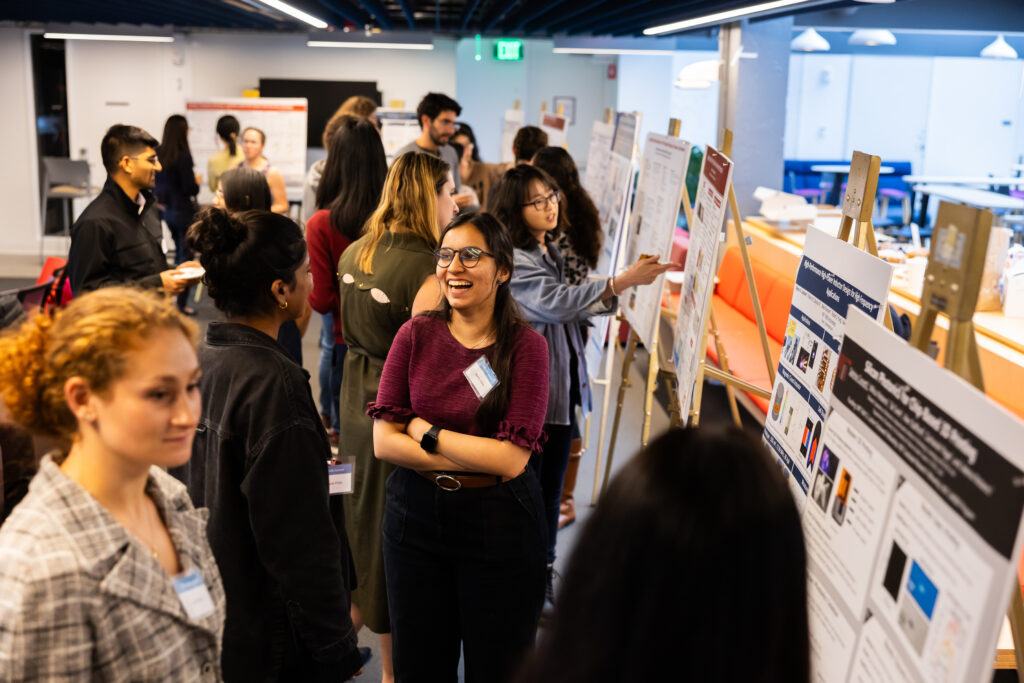
During the summit, students and postdocs from the department led a poster session. “The poster session foster more engaging and personalized conversations,” mentioned another GW6 co-president and current EECS graduate student Linlu Qiu. The attendees were highly engaged for almost two hours. The event concluded with a reception that included appetizers and poster awards. “At the happy hour, it was great to see our invited speakers/panelists and attendees chatting, and I felt a sense of belonging in this community,” remarked Elyssa.
The GW6 summit is a significant annual event organized by GW6 to promote the professional development and community building of women and underrepresented genders. This group was initially established in 2001 as a student organization within the department to focus on personal and professional growth. Throughout the year, the group hosts several social and professional events, including the GW6 research summit, which provides a platform for women and other underrepresented genders to showcase their research. Attending these events is an excellent way to meet students from the EECS department umbrella, which includes electrical engineering, computer science, artificial intelligence, and decision-making disciplines. At the close of the event, all attendees alike were inspired by all contributors and by the invigorating conversations!